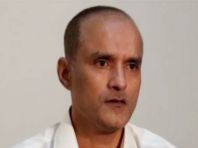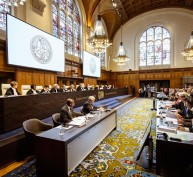(1) finds, unanimously, that it has jurisdiction, on the basis of Article I of the Optional Protocol concerning the Compulsory Settlement of Disputes to the Vienna Convention on Consular Relations of 24 April 1963, to entertain the Application filed by the Republic of India on 8 May 2017;
(2) rejects, by fifteen votes to one, the objections by the Islamic Republic of Pakistan to the admissibility of the Application of the Republic of India and finds that the Application of the Republic of India is admissible;
(3) finds, by fifteen votes to one, that, by not informing Mr. Kulbhushan Sudhir Jadhav without delay of his rights under Article 36, paragraph 1 (b), of the Vienna Convention on Consular Relations, the Islamic Republic of Pakistan breached the obligations incumbent upon it under that provision;
(4) finds, by fifteen votes to one, that, by not notifying the appropriate consular post of the Republic of India in the Islamic Republic of Pakistan without delay of the detention of Mr. Kulbhushan Sudhir Jadhav and thereby depriving the Republic of India of the right to render the assistance provided for by the Vienna Convention to the individual concerned, the IslamicRepublic of Pakistan breached the obligations incumbent upon it under Article36, paragraph 1 (b), of the Vienna Convention on Consular Relations;
(5) finds, by fifteen votes to one, that the Islamic Republic of Pakistan deprived the Republic of India of the right to communicate with and have access to Mr. Kulbhushan Sudhir Jadhav, to visit him in detention and to arrange for his legal representation, and thereby breached the obligations incumbent upon it under Article 36, paragraph 1 (a) and (c), of the Vienna Convention on Consular Relations;






